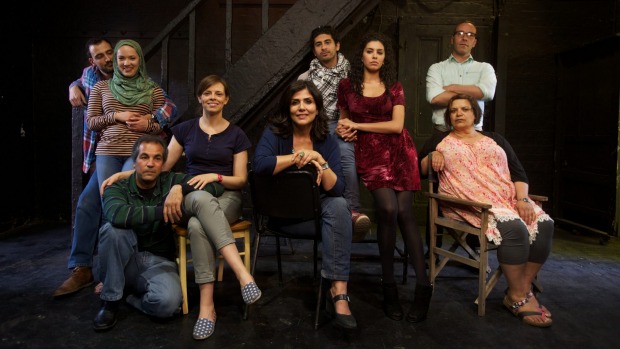Most Victorians would agree that VCE texts should promote understanding of difficult and thorny issues, foster critical thinking and cultivate “democratic and community values”.
They would also agree that the VCE system should never be appropriated as a tool to push a political agenda into the mainstream.
And so, when the B’nai B’rith Anti-Defamation Commission, a civil and human rights organisation, was alerted to the fact that the play Tales of a City by the Sea was now part of the VCE drama list, we made our voice heard about its suitability and appropriateness as an educational text.
Our speaking out provoked a heated discussion and commentary in the media, especially since Minister for Education James Merlino asked for a review to examine the selection process for VCE English, literature, drama and theatre studies.
Since we are not in the business of censorship, we never approached the minister to have the play removed. While we take great issue with the play, in a robust democracy we believe that the answer is more conversation, not less. Our goal was to generate a discussion about what our children are learning at school, and to question how a text, that in our view undermines respectful and inclusive Victoria, was included in the VCE curriculum.
Set in Gaza during the 2008 Hamas-Israel war, the play weaves in scenes, poems and conversations that portray Israelis as merciless and callous, “riding on their tanks … and their F-16 fighters … leaving their artefacts and ruins, leaving fire and debris” and wanting to push the Palestinians “back into the dark ages”.
There is no historical context or pretence to an even-handed educational perspective, just a whitewashing of the facts that depicts Israelis as the cruel villains, and the Palestinians as the victims.
VCE students are never told about the 2005 Gaza withdrawal and the repeated peace offers made by Israel during the past two decades, the suicide bombings that have claimed the lives of thousands of Israelis, the efforts by the Israeli army to minimise civilian deaths, the thousands of rockets fired from Gaza at Israeli cities by Hamas, which is dedicated to Israel’s destruction.
What will be fixed in the minds of impressionable young students is the message that the immoral, faceless Israelis kill Palestinians out of sheer evil.
Consider the association of Jews with the deliberate and intentional spilling of innocent blood, especially that of children, feeding into classic anti-Semitic myths.
Towards the end, one character paints Israelis as genocidal killers driven by their warped religion, “What sacred verses can explain sniper fire … And white phosphorus rain? … What Holy Scripture gave the command, ‘Thou shall wipe out their villages and scorch their land’? And after the massacre will they lament, will they seek forgiveness, will they repent, will they try to sanctify their burdened souls for besieging a people behind their walls.”
Notice, it is now all Jews and their holy scriptures that are on trial for the crimes perpetrated, not just Israelis.
Rather than learning about the complex and multifaceted Israeli-Palestinian conflict, students would be justified, after viewing this play, in feeling contempt towards Israelis and Jews.
Now put yourself in the position of a Jewish student.
You walk out and are forced to defend to your outraged classmates your “twisted” religion that rationalises the murder of Palestinians. You would also feel anxious about admitting you have any connection to “heartless” Israel.
In a climate of a rising anti-Semitism, and a growing rhetoric of intolerance and radicalisation, words and images do matter. The ugly and destructive tensions and ideologies of a distant geographical conflict should not be imported into Victoria and poison our students’ hearts and minds.
When parents send their children to school, there is an expectation that they will not be placed in a toxic environment, where they might be isolated or attacked for who they are. This is part of the community standards provision built into the VCAA selection criteria.
For the record, we would be shouting from the rooftops if a play that disparagingly depicted Islam as a violent religion and all Muslims as terrorists, or trafficked in demeaning stereotypes about the LGBTI community or women, or degraded all indigenous Australians was selected for the VCE.
Schools should not be co-opted as a weapon to turn students against one another, stoke the fires of divisiveness, and foment hostility against one group.
Dr Dvir Abramovich is Chairman of the B’nai B’rith Anti-Defamation Commission




